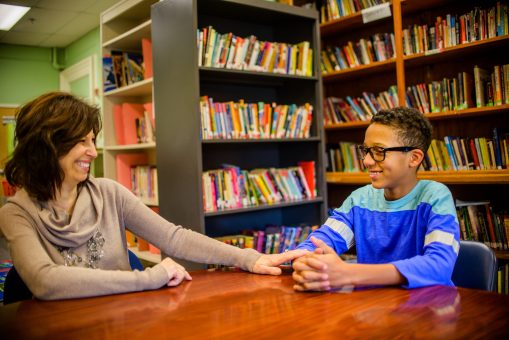
By Melissa Ragan
Last October, the American Academy of Pediatrics declared a National State of Emergency in children’s mental health. Among the many factors leading to this declaration were the increase in child and adolescent mental health issues and pandemic stress.
And yet, social-emotional learning (SEL), a program specifically developed to attend to the mental health of our students has been politicized leaving access to much-needed care by our students in jeopardy.
It is critical we don’t let children suffer due to political divides between adults. We need to ensure that families and educators understand what SEL is and how to finetune its benefits to address the unique needs and cultures of our various regions and states.
Despite the recent flurry of attention, SEL isn’t new—it’s been an essential component of student learning since the 1970s, under a variety of names, including emotional intelligence, “social skills” and “life skills.” The term SEL entered mainstream education in the mid-1990s, when Daniel Goleman’s book argued that emotional intelligence is more important than IQ in determining an individual’s success in life.
Teachers and parents agree that children need to build key competencies, including self-awareness, social awareness, self-management, responsible decision-making, and relationship skills, as they transition through the stages of development. This agreement on benefits, however, can sometimes be clouded by terminology. The results from a 2021 Thomas B. Fordham Institute poll show that, while there is broad support for teaching SEL-related skills in schools, the term “social-emotional learning” is what drives its unpopularity, and the focus should be on specific key competencies, or “life skills.”
When it comes to SEL-related life skills, research shows that helping students build social and emotional skills can improve their academic achievement and classroom behavior, while reducing stress and depression. Data also show long-term benefits. SEL is an essential skill for healthy child development and can help students show integrity, identify values, and develop better behavior.
One study looked at children who had SEL lessons in kindergarten and found that they had a lower likelihood of being involved in juvenile justice, living in poverty, and abusing substances as long as 20 years after using the program.
These are just a few examples of what is at risk by banning SEL, especially during a time of great need. Social media, equity, bullying, food insecurities, poverty, drugs, violence, self-harm, and trauma were already impacting American youth at an alarming rate before the pandemic.
Although experts have predicted worrisome mental health trends in young people for more than 35 years, most of the research over the past several decades has focused on fixing what is broken, rather than trying to get ahead of potential issues. Contrast this with the response to infectious disease: Two years ago, the country shut down to prevent the spread of COVID.
By banning SEL curricula in response to political pressure, we risk increasing mental health issues in today’s classroom and tomorrow’s society because we’re removing an evidence-based solution from an educator’s repertoire. We cannot wait another minute to ensure our students have access to all the tools they need to be successful in and out of the classroom.
So, what can be done?
Schools need to do a better job at being transparent with families about what SEL is by showing them the curriculum and letting them see what their children learn from SEL.
Teachers need to say: “We teach SEL every single day to your kids. We literally cannot teach without SEL. We’ve been doing it for 30-plus years with circle time, and by teaching anti-bullying, gratitude, and digital-citizenship skills.”
On that note, SEL needs to be done correctly. It’s critical that educators and those using SEL programs get the professional development they need to ensure they can do it and do it well. This provides a two-fold benefit of improving their own SEL skills as well.
Families need to understand what SEL teaches. As mentioned earlier, the majority of families who are mistrustful of the acronym SEL tend to support the same lessons when presented as “life skills” or “social skills.” I don’t believe any parent that can accurately define SEL will say “that’s not something I want my child to learn.”
Rather than parsing what is taught to find potentially offensive content, let’s focus on better understanding the social and emotional development needs of our students. Let’s reaffirm our shared values around what they will need to become well-rounded adults.
Let’s let educators continue doing the job of building social and emotional capabilities.
What we risk by banning SEL in schools is an increase in depression, anxiety, low self-esteem, and other mental health issues today and in the future.
Now is not the time to take away a tool that could make a real difference in the lives of children.

Melissa Ragan is a former English teacher and Chief Learning Officer at Navigate 360; she’s also co-author of the forthcoming book The SEL Classroom.
